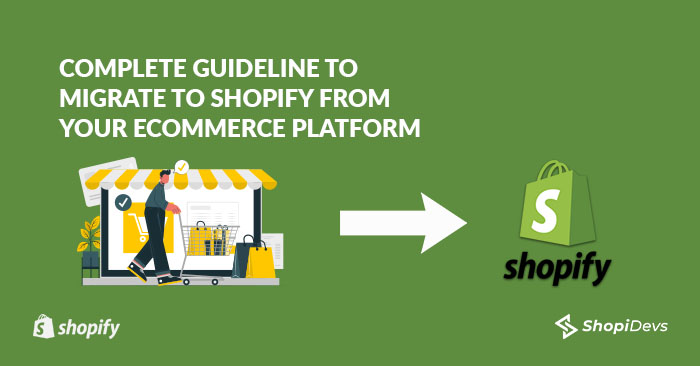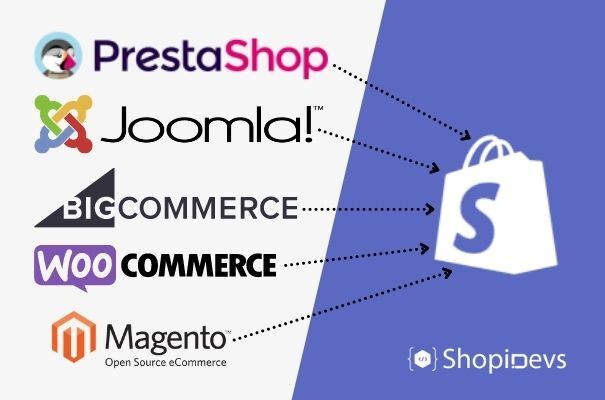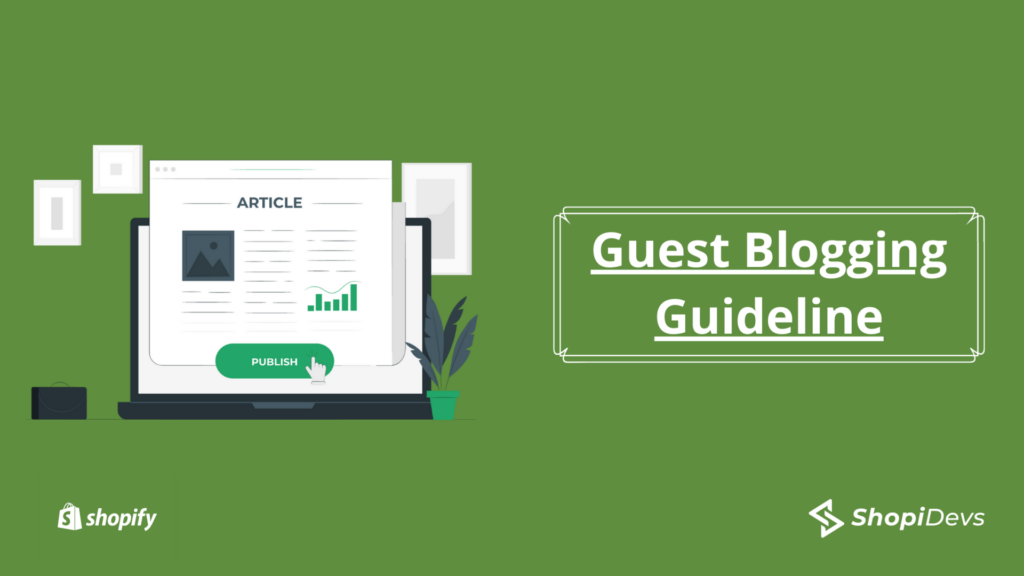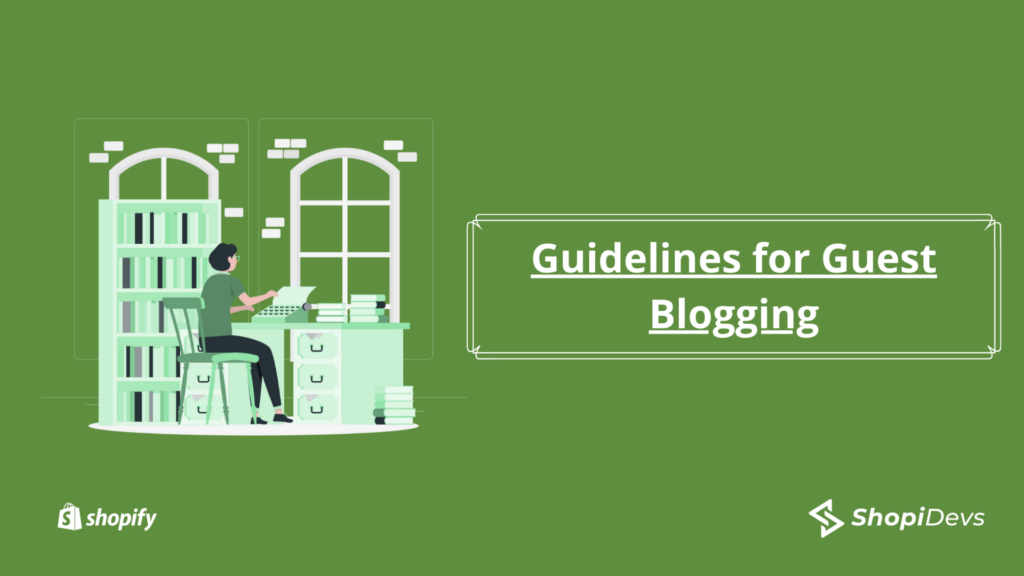A CMS (Content Management System) is a computer program that allows you to create or migrate your eCommerce platform while offering site templates and many features. Find out in this article about the whole process to migrate to Shopify from your eCommerce platform.
Shopify is a SaaS CMS that allows you to easily create a complete and functional online store. The Shopify ecosystem has over 1,000,000 merchants like you who need experts to support them.
To help you succeed on this platform, there are specialized Shopify agencies. They are there to offer you solutions to help you start, sell, develop and manage your eCommerce business. To do this, these agencies offer custom apps, or for general use on the Shopify App Store. In fact, 87% of Shopify merchants use applications for the development of their online stores.
Using a specialized agency has several advantages. This makes it possible to optimize the migration of its eCommerce platform and to save time. Indeed, take advantage of the agencies’ experience in migrating stores to Shopify.
We can see that it is very easy to develop your eCommerce business by being supported by a Shopify Partners agency. Discover through this article why and how to migrate your eCommerce business to Shopify. To illustrate our point, we have collected testimonials from three Shopify Partners agencies: Ultro, L’Atelier 42, and T-Pop.
Presentation of Agencies
We collected testimonials from three Shopify Partners agencies and feedback on the migration of eCommerce sites to Shopify.
Ultro
Ultro is a digital agency specializing in design, UX, and eCommerce sites, which was founded in 2009.
Ultro works on issues of digital strategy, identity, and graphic design. The agency also supports its clients in the implementation and development of several CMS and eCommerce platforms.
Ultro became a Shopify Partner by observing the attractiveness of the SaaS platform. Moreover, it is often the clients who request it from the agency. “We have been following the Shopify project since its inception, we are interested in several aspects of this platform: the administration interface which is very easy to use by our customers, the quality of development, and the reliability of the platform.”
According to the agency, what may be holding back customers when it comes to Shopify is primarily the fixed and variable costs (based on revenue) to be paid to the Shopify company. “However, once the comparison with other platforms is made, taking into account the costs of hosting, licenses, and scalable maintenance, we end up with rents that are often comparable and competitive.”
Indeed, successful e-merchants know that it is necessary to invest permanently in these sales channels. Business strategy evolves, as do regulations and marketing trends. We can see this, for example, with the boom in mobile phones over the past five years.
In addition, working with Shopify allows Ultro to benefit from privileged access to the technical and marketing teams to know precisely the evolutions of the platform. “ It is a SAAS application that is rapidly evolving on a large number of subjects that we must deal with, such as omnichannel with the“ click – & – collects”.
Being a Shopify partner also allows Ultro to contribute to the ecosystem. That is to say to suggest areas for improvement and share feedback from its customers. With this partnership, the agency wishes to be correctly identified as an expert in the Shopify solution and to offer this specialty in its range of services.
Workshop 42
Then, we turned to L’Atelier 42, an agency of the Antadis group. However, the two entities were separated in 2020 as they cater to two different segments. Antadis, which has existed since 2002, is aimed at e-merchants carrying out large volumes with very specific needs concerning the optimization of their store. The Atelier 42 agency has existed as a business unit for 2 years. It is aimed at merchants wishing to start their business and quickly develop their sales.
“In 2019, seeing more and more prospects ask us about the Shopify solution, we started to wonder about the possibility of integrating this CMS into our solution portfolio.”
The agency’s reluctance mainly concerned the fact that Shopify is a SaaS platform. “ So we decided to start without specific development at the start. We used one of the many premium themes as well as a myriad of apps to achieve our ends and the result was not disappointing. ”
T-Pop
T-Pop is an application that offers a print on demand service, more commonly known as “Print on demand”. The application is free and without any commitment.
The “Print on demand” offered by T-Pop corresponds to the fact of printing a product only when an order has been placed. “Thus, no stock to buy or manage: it is not only practical (no investment) but also ecological because we do not end up with unsold stock.”
On the other hand, the agency takes care of the entire production and shipping chain once the order has been placed on the online store by the user. “In short: Thanks to our application, you can apply your designs to a selection of products (t-shirts, sweatshirts, water bottles, mugs, etc…). Our application will create all of these products on your site automatically. You are free to define the sale price.”
The agency even takes care of triggering the notification of the shipment of the package by adding the tracking number.
T-Pop chose to become a Shopify Partner because it is a complete and easy-to-use solution. “In the past, we have managed a number of sites running under various CMS (Joomla, WordPress, Prestashop, etc.). The major problem encountered by our customers was the technical part: server management, updates, security breaches, extensions that are sometimes complex to manage”.
The agency also decided to create its application with Shopify in order to standardize and rationalize the development of its service as much as possible. “ Shopify offers very comprehensive development tools and an extremely well-designed API. Not having had to rely on our customers’ server resources was a decisive point. ”
Why Migrate to Shopify from Your eCommerce Platform?
When you are new to eCommerce it is not easy to choose your CMS platform in view of the many possibilities. It may happen that the chosen CMS no longer suits you while your activity is in full development. Certain CMS do not adapt effectively to your evolution, for example when your business volume increases, or when your catalog grows.
It is therefore good to consider migrating your eCommerce to a platform adapted to the newly identified needs. Discover through the testimonials of our agencies the advantages of migrating your eCommerce business to the Shopify platform.
There are different factors that can cause you to migrate your online store to another CMS. For example, for Ultro this depends in particular on technical constraints and new business needs.
You May Also Read: How To Launch Shopify Store In Less Than 15 Minutes
Technical Constraints
Technical constraints are often linked to an upgrade of the platform on which you operate. Indeed, an eCommerce application evolves over time and a new version is generally published every 3 to 5 years. This update is sometimes imposed by the publisher for security needs or due to obsolescence of the code.
In this case, it is up to the e-merchant to plan a budget in order to continue using the CMS, and the question arises of choosing between the upgrade or a migration to another platform.
This constraint does not apply to Shopify because the platform supports updates automatically.
New Business Needs
Your needs may also change as your business grows. The various functionalities of your CMS are then no longer adapted to your needs and you expect more from your content management software.
If the strategy and the means of the company evolve, it is an opportunity to write a new expression of needs and to find the best platform that can meet them.
Migrating your eCommerce platform to Shopify can also be an opportunity to take advantage of the latest technologies and respond more effectively to the needs of your customers. In addition, you may need to modernize the design of your site to match the new browsing habits of Internet users and make their journey on your site as easy as possible.
We can see that there are different reasons that can push you to migrate your online store to another CMS, whether technical or functional. It’s up to you to identify when is the most opportune time to think about migrating your eCommerce platform.
Why Use an Agency to Migrate Your eCommerce Business to Shopify?
Migrating an eCommerce site can be a tricky operation because CMS does not work exactly the same way. For example, data is never stored the same way from application to application, so it’s necessary to take a good inventory and decide what should be kept and then reprocessed for import. It may also be the time to take stock of personal data management and its regulations.
Using a specialized Shopify agency also allows e-merchants to take advantage of the change in the technical platform to redesign the online store. “ We design the site with two main objectives: that the values of the brand are transmitted well and that the shopping experience is as smooth as possible. ”
Calling on an agency for the migration of your eCommerce business allows you to ensure the quality of execution. Atelier 42 provides an example to illustrate this: ” the Tictail redemption of golds by Shopify, we migrated thirty merchants. We migrated orders, customers, existing products, customer reviews to Shopify. These e-merchants have not lost any data. We then redirected all SEO traffic to the new domain name. ”.
This migration, which went off without a hitch, enabled these merchants not to lose their activity. On the contrary, it allowed them to continue to develop without having to plan maintenance investments and without worrying about the sustainability of their eCommerce platform.
How to Successfully Migrate Your eCommerce Platform?
To successfully migrate your eCommerce platform, you must first ask the right questions. Why do you want to migrate your store to another CMS? What is currently working and what is not?
For L’Atelier 42, you must ask yourself these questions at all levels: “ Acquisition, conversion, use of the back office, use of the site by customers, nothing should be left to chance. ”
For Ultro, another dimension comes into play in the success of the migration of its eCommerce site: mastery of ambitions, planning, and budget. “ Regarding the planning, the e-merchant’s calendar is often busy and the highlights of the sale are not always conducive to major changes, so it is interesting to work in batches starting from what is called a Product Minimum Viable then to make it evolve over time in continuous improvement. ”
As an e-merchant, the success of this project generally materializes in the increase in turnover or the improvement in the profitability of the store.
You can benefit from different support depending on the agency you choose. For example, the T-Pop app offers fast support and the most comprehensive help center possible, as well as blog posts. “ We are currently recruiting new writers in order to offer more and more content ”. The aim is to streamline the customer journey. Now hopefully you will better idea about how to transfer Shopify store.
Migrating your eCommerce platform to Shopify becomes more accessible thanks to the support of specialized agencies.
How to Find Your Shopify Partners Agency?
Finding an agency that can support you in your migration is not always easy. That’s why Shopify has put together a solution to help you. With the Shopify Partners directory, you have access to all the Shopify partner agencies present.
Therefore, you can search for the one that best suits you using the different filters available:
- the agency’s area of expertise;
- the region where it is located;
- the year of its creation and the number of employees;
- sector specialization.
Find your agency in just three steps:
- Find the ideal agency for your project with the different filters
- Contact the agencies of your choice to get to know and discuss your project
- The agencies answer you, you make your choice
This new feature allows you to make your search faster and more efficient. So don’t be afraid to give it a go!
Conclusion
So you can see that it’s very easy to migrate to Shopify from your eCommerce business. If you are facing any kinds of trouble, feel free to notify us. You can contact us through email or give comment in the comment box. Do not hesitate!




